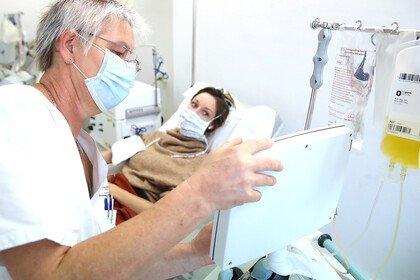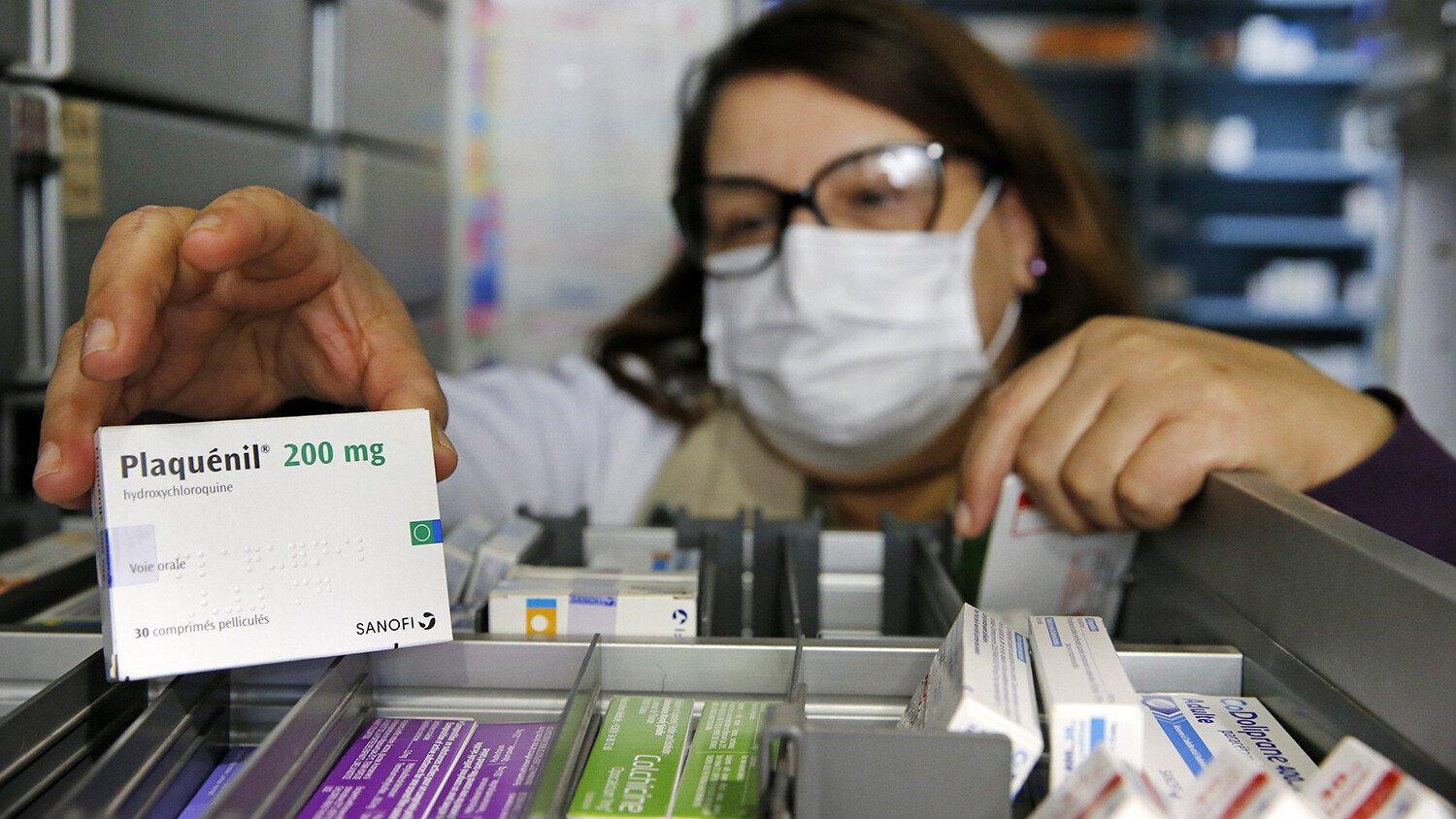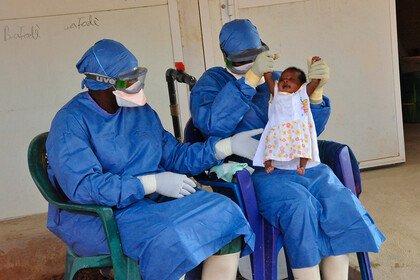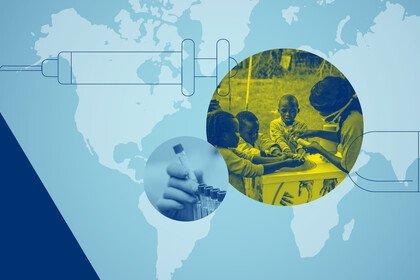
Can chloroquine prevent coronavirus disease? Only research will give us the answer
The COVID-19 Therapeutics Accelerator is funding clinical trials that will answer whether the anti-malarial drugs hydroxychloroquine and chloroquine can be used to prevent the spread of Covid-19.

Update: 6 July 2020
Following a review by the UK’s Medicines and Healthcare Regulatory Agency and endorsement from the World Health Organization, the Wellcome-funded COPCOV study on hydroxychloroquine and chloroquine has resumed.
Taken at the right dosage, hydroxychloroquine and chloroquine are safe and effective treatments for malaria, but Covid-19 is a new disease. Only through large-scale clinical studies can we understand how it responds to different treatments.
COPCOV is a prophylaxis study on hydroxychloroquine and chloroquine, which aims to understand whether the drugs can prevent Covid-19 in healthy patients when taken at approved dosage levels, rather than enrolling patients who are already infected with Covid-19. This approach may yield significantly different results.
As the new coronavirus continues to spread across the world, we are still no closer to knowing what drugs or therapies will stop it.
There has been considerable hype around the potential of hydroxychloroquine and chloroquine to stop the spread of Covid-19. While some have described these drugs as possible game-changers, others have reported serious concerns – but the evidence so far hasn't been conclusive.
Investing in research at scale and at speed is the only way to find out definitively whether these drugs can help in this pandemic. That’s why, as part of the COVID-19 Therapeutics Accelerator, an initiative launched by Wellcome, the Bill & Melinda Gates Foundation and Mastercard, we’re investing £7.5 million in hydroxychloroquine and chloroquine clinical trials.
What these trials will look at
The clinical trials will run in countries across the world from April. They will investigate whether hydroxychloroquine and chloroquine can be used safely to prevent the spread of disease in people who have been exposed, or are at high risk of exposure, to the coronavirus. The trials will involve healthcare workers at the front line, as well as people with no symptoms who have had close contact with someone confirmed or suspected of having Covid-19.
Equitable access lies at the heart of the COVID-19 Therapeutics Accelerator. So research findings will be open access to ensure researchers, policy makers and global health leaders everywhere can use the work. The COVID-19 Therapeutics Accelerator will also help to ensure that effective products are affordable and made available to all, especially those in low-resource settings.
Both drugs are cheap to make and can be manufactured quickly in volume. If these trials prove hydroxychloroquine and chloroquine to be effective, the drugs could be rapidly rolled out across the world to slow this pandemic.
If they help us reduce the amount of time people spend in hospital, it will have a big impact – health professionals will be able to return to work and people home to their families sooner.
What do we know about hydroxychloroquine and chloroquine?
Hydroxychloroquine and chloroquine have been approved as safe and effective drugs to treat malaria. When taken, they accumulate in lung tissue where the coronavirus is found – this is why researchers think they might be effective against the virus.
There’s enough early laboratory and anecdotal evidence to get some researchers excited. None of that evidence is rigorous or definitive though. No large-scale clinical trials on the use of these drugs for Covid-19 have taken place in humans to date.
The World Health Organization (WHO) is also running its own ‘megatrial’ of chloroquine alongside other potential therapies. The researchers working on the COVID-19 Therapeutics Accelerator trials are collaborating closely with the WHO to share data and ensure the knowledge generated can benefit people as quickly as possible.
Teaching an old drug new tricks
One of the benefits of researching existing approved drugs is that we already know they’re safe – so we can move quickly to repurpose them for other uses. New drugs have to go through years of safety trials before they become available.
Hydroxychloroquine and chloroquine have been safely used in millions of people, including children. While there have been reports of dangerous side effects, with people self-medicating as an option to treat Covid-19, the drugs were often taken in inappropriate doses or formulations. No one should try to take drugs until we know how they can be used safely for a disease.
When the drugs don’t work
Studies currently underway will not give us a definitive answer as to whether hydroxychloroquine and chloroquine will work in this pandemic. But the trials funded by the Therapeutics Accelerator will. With countries already stockpiling the drug and worried individuals self-medicating, it’s important that we know this so research can move on.
These trials are high-risk, but a bet worth placing. I’m cautiously optimistic that chloroquine may have some benefit in this pandemic but I’m also realistic that it’s not the answer. We’ll only know if we try.
This is the first stop in our search. We must explore all possible options and find out quickly whether existing drugs will prove to be safe and effective. There are other potential treatments that we will need to investigate – through the COVID-19 Therapeutics Accelerator we’re also funding research to understand the body’s immune response to the coronavirus. But more investment is required to do this vital research – including $8 billion needed immediately to fund research and development for vaccines, diagnostics and treatments.


